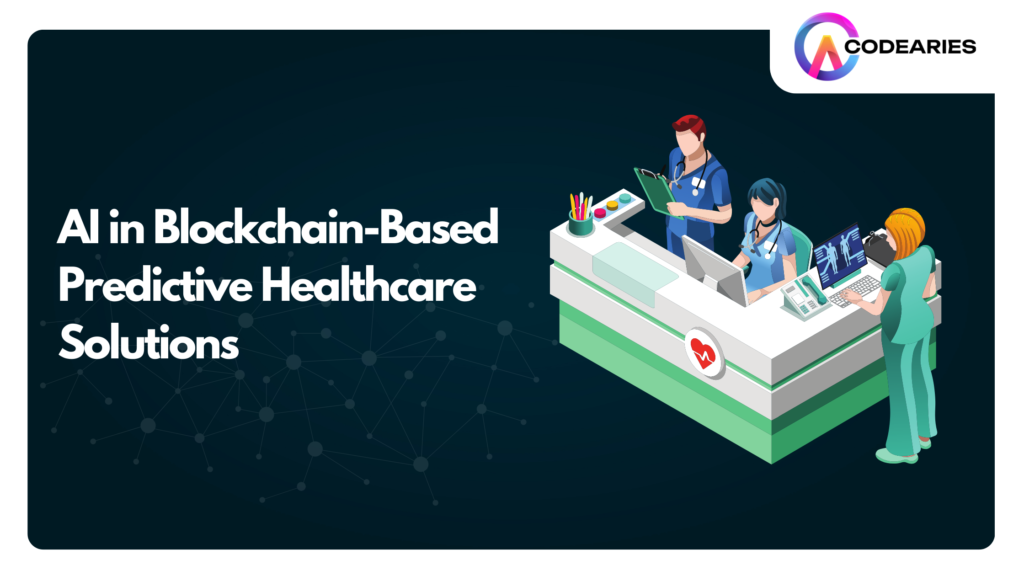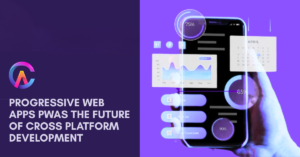The healthcare landscape is transforming rapidly, fueled by advancements in artificial intelligence (AI) and blockchain technology. These groundbreaking innovations are paving the way for predictive healthcare solutions, where personalized and proactive medical interventions are becoming standard practice. AI empowers healthcare professionals to sift through massive datasets and forecast potential health outcomes, while blockchain guarantees secure, tamper-resistant data storage.
Together, these technologies are reshaping healthcare systems, enhancing patient outcomes, ensuring data security, and fostering cost-effective care models.
Defining Predictive Healthcare
Predictive healthcare utilizes advanced technologies to anticipate potential medical conditions before they manifest. By harnessing extensive datasets, predictive analytics can discern patterns indicating the likelihood of future health events, including the onset of diseases or the worsening of chronic conditions. The synergy of AI, blockchain, and big data analytics is crucial in this realm, facilitating early detection, efficient treatment planning, and improved patient care.
Transformative Role of AI in Healthcare
AI is revolutionizing healthcare through various avenues. The global Artificial Intelligence (AI) in healthcare market size was valued at USD 19.54 billion in 2023 and is projected to grow from USD 27.69 billion in 2024 to USD 490.96 billion by 2032, exhibiting a CAGR of 43.2% during the forecast period.Diagnostic tools powered by AI are capable of analyzing medical imagery, such as X-rays and MRIs, with exceptional precision, often identifying anomalies that evade human detection. Moreover, machine learning-driven predictive analytics can evaluate patient histories, genetic predispositions, and lifestyle habits to anticipate potential health complications. AI is increasingly integral in drug discovery, treatment strategizing, and personalized medicine, making these processes more sophisticated through the application of AI algorithms.
The Promise of Blockchain in Healthcare
Blockchain technology is recognized for its security and transparency, making it ideal for healthcare data management. Within the healthcare ecosystem, blockchain can protect patient records, ensuring they remain secure, immutable, and accessible solely to authorized personnel. By storing health data on blockchain networks, patient privacy is maintained, safeguarding against cyber threats while enhancing data sharing among providers and patients. The decentralized nature of blockchain empowers individuals to control their medical information.
The Fusion of AI and Blockchain in Predictive Healthcare
The integration of artificial intelligence (AI) and blockchain technology is set to transform the healthcare landscape, especially in predictive healthcare. This combination presents a powerful solution to the challenges faced by healthcare providers in today’s complex environment.
How AI and Blockchain Work Together
Data Security and Privacy:
-
- Blockchain: Offers a secure, decentralized ledger that protects the integrity of patient information, making it tamper-proof and transparent.
- AI: Requires access to reliable data for pattern recognition and predictive analytics, which blockchain can securely provide.
Interoperability:
-
- Blockchain: Promotes efficient data sharing across different healthcare platforms, enhancing collaboration and communication.
- AI: Utilizes diverse datasets to refine predictive models and improve healthcare outcomes.
Transparency and Trust:
-
- Blockchain: Ensures a clear and verifiable trail of data transactions, increasing stakeholder trust.
- AI: Boosts confidence in healthcare predictions through high accuracy and reliability, derived from comprehensive data analysis.
Personalized Medicine:
-
- AI: Tailors treatment plans by analyzing specific patient data, leading to individualized healthcare solutions.
- Blockchain: Safeguards patient information, enabling secure access for analysis and research.
Practical Applications in Predictive Healthcare
- Predictive Diagnostics:
- AI technologies can assess patient information to forecast disease risks before clinical symptoms manifest.
- Blockchain secures the data, ensuring the predictions are based on accurate and reliable information.
- Drug Discovery and Development:
- AI accelerates the identification of drug candidates by analyzing biological data and optimizing potential targets.
- Blockchain protects intellectual property rights and fosters collaboration among researchers and institutions.
- Supply Chain Management:
- AI enhances logistics by predicting the demand for medical supplies and monitoring their distribution.
- Blockchain verifies the authenticity of medical products, ensuring their safety and efficacy.
- Clinical Trials:
- AI analyzes data from clinical trials to highlight effective treatments and predict outcomes.
- Blockchain simplifies patient recruitment while maintaining data confidentiality and integrity.
The Role of AI Algorithms in Predictive Healthcare
AI algorithms, especially those based on machine learning, are vital in predictive healthcare. These algorithms examine both historical and real-time health data to identify trends that forecast future health outcomes. For instance, machine learning models can predict the likelihood of cardiovascular diseases by analyzing factors such as age, family history, and lifestyle choices. Predictive algorithms can also customize treatment plans based on genetic profiles, resulting in highly personalized care.
Utilizing Predictive Analytics in Healthcare
Predictive analytics involves the application of data, statistical algorithms, and machine learning techniques to forecast outcomes based on historical information. The applications of predictive analytics in healthcare are varied, from early disease identification to predicting post-surgery patient outcomes. By employing predictive analytics, healthcare providers can foresee chronic conditions like diabetes or hypertension, enabling timely interventions and improved health management.
Ensuring Health Data Integrity with Blockchain
Maintaining the integrity of health data is crucial, and blockchain technology plays a key role in this. Unlike traditional healthcare systems, where data can be manipulated or lost, blockchain ensures that health records remain unalterable. Each transaction is timestamped and replicated across multiple nodes, making unauthorized data alterations virtually impossible to execute undetected. This reliability is essential for effective treatment, as accurate patient data is fundamental. Additionally, blockchain can diminish fraud in healthcare by offering verifiable information, particularly concerning insurance claims and billing.
Personalized Medicine Powered by AI and Blockchain
Personalized medicine tailors healthcare to individual patients based on genetic information, lifestyle, and environmental influences. AI can analyze these elements to propose customized treatment strategies, while blockchain ensures the secure management of sensitive data involved. AI-driven predictive models can anticipate patient responses to specific therapies, with blockchain facilitating secure information sharing among healthcare professionals without compromising patient privacy.
Improving Patient Outcomes with AI and Blockchain
By integrating AI and blockchain, healthcare providers can significantly boost patient outcomes. AI tools enhance diagnostic accuracy and foster personalized treatment plans, while blockchain guarantees secure data sharing, promoting collaboration among healthcare providers. Predictive healthcare solutions can uncover health risks early, allowing for preventive measures that lead to better long-term health results. AI models can also monitor patient conditions in real-time, dynamically adjusting treatment plans to maximize effectiveness.
Addressing Ethical Concerns in AI and Blockchain
With any healthcare technology, ethical considerations arise regarding the implementation of AI and blockchain. One major concern is the potential for bias in AI algorithms, which may lead to inequitable treatment recommendations based on race, gender, or socioeconomic status. Ensuring fairness and accountability in AI applications is crucial. Additionally, blockchain raises ethical questions about data ownership and patient consent. Patients should retain control over their health data and must provide informed consent for its use in predictive healthcare models.
Challenges in Implementing AI and Blockchain Solutions
Integrating AI and blockchain into healthcare presents several challenges. Technical obstacles, such as ensuring interoperability between diverse systems, remain significant. Furthermore, regulatory agencies have yet to fully define frameworks for AI and blockchain technologies, causing uncertainty for healthcare providers. Scalability poses another challenge, as implementing these solutions across extensive, intricate healthcare networks can be resource-intensive. A lack of trust and understanding among stakeholders may also hinder the adoption of these technologies.
Looking Ahead: Future Trends in AI and Blockchain in Predictive Healthcare
The future of predictive healthcare appears bright, with AI and blockchain leading the charge in medical innovation. As AI models evolve and become more advanced, they will yield increasingly precise health forecasts, enabling earlier interventions and improved disease prevention strategies. Simultaneously, blockchain will continue to enhance data security and empower patients. The rise of technologies such as quantum computing and advanced genomics will further broaden the capabilities of AI and blockchain in healthcare, potentially transforming healthcare systems globally.
Conclusion
The convergence of AI and blockchain in predictive healthcare signals a transformative shift in modern medicine. By harnessing AI for predictive analytics and blockchain for secure data management, healthcare providers can deliver more personalized and effective care. The integration of these technologies has the potential to revolutionize healthcare delivery, emphasizing prevention and early intervention rather than reactive treatments. The future of healthcare rests on the synergy of AI and blockchain, promising a more secure, efficient, and personalized medical approach.
FAQs
1. What algorithm is used in blockchain healthcare?
In blockchain healthcare, algorithms like SHA-256 ensure data integrity by converting patient information into a secure hash. Consensus algorithms, such as Proof of Work (PoW) and Proof of Stake (PoS), validate transactions on the blockchain. Digital signature algorithms, like ECDSA, verify transaction authenticity. Smart contracts, written in languages like Solidity, automate healthcare processes, while encryption algorithms like AES protect sensitive data.
2. How are algorithms used in healthcare decision-making?
Algorithms enhance healthcare decision-making by analyzing large datasets for actionable insights. They predict patient outcomes and disease progression, assist in accurate diagnoses, and tailor personalized treatment plans. Additionally, algorithms optimize resource allocation by forecasting patient demand and support Clinical Decision Support Systems (CDSS) that provide evidence-based recommendations to clinicians.
3. What is the role of AI in health equity?
AI promotes health equity by identifying underserved populations and enabling targeted interventions. It personalizes care to meet diverse patient needs and improves access to healthcare services through telehealth solutions. AI also analyzes health trends to inform policymakers and supports inclusive research by designing clinical trials that include diverse patient groups.
4. What is an example of AI bias in healthcare?
An example of AI bias in healthcare involves a risk prediction algorithm trained mainly on data from white patients, which underestimated the risk for patients of color. This bias resulted in disparities in care, underscoring the need for diverse datasets to train AI models to ensure equitable healthcare outcomes for all populations.







